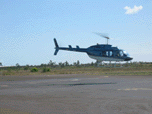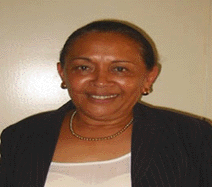 PRIVATE SECTOR PRIVATE SECTOR |
Madagascar offers several advantages to industrial investors. In the past twenty years the successive governments have devoted themselves to improve the business environment. "Before, it used to take 3-6 months, to register a company, today all formalities are done in a week" says Mr. Horace Constant, Minister for the Development of the Private Sector and for Privatization. Actually, after 1997 one ministry was charged with the development of the private sector, in order to insure the coherence and the synergy of all actions. Malagasy companies had an urgent need to reinforce their management capability and to keep themselves at a satisfactory level of competitiveness. Thus ministerial departments and donors started working together in order to set in motion support structures. Financed by the World Bank, The Private Sector Support Fund (Fonds d'Appui au Secteur Privé - FASP) assists companies to improve their productivity, the quality of their products, to search for partners or to train their staff. The President of FASP, Mr. Alain Rasolofondraibe explains: "a tool was necessary to support liberalization, to make the program succeed, to enter international circuits and to allow for the acquisition of knowledge". Likewise there is a Regional Program for Trade Development (Programme Régional Intégré de Développement des Echanges - PRIDE) financed by the European Commission that tries to promote economic and commercial trade among the islands of the Indian Ocean, certification and quality products as well as a commercial database.

The obsolete business laws were improved. Laws, mostly inherited from the French, did not respond any longer to the present context of liberalization and internationalization. This was the case of corporate law, with texts on bankruptcy and liquidation of enterprises based on 19th century French law. Thus, the laws and regulations that ruled the day-to-day business operations were systematically analyzed and reviewed in order to comply with today's international practices.
The new law on trade companies brings an important number of innovations and anticipates, among others, the possibility to create a single-person limited company or a public stock company at personal level. Furthermore, the legislation recognizes arbitration and mediation as an option for the settlement of disputes. Operational since March, the Arbitration and Mediation Center of Madagascar (Centre d'Arbitrage et de Médiation de Madagascar - CAMM), is a neutral, independent and competent alternative. Operators are protected against fraud, counterfeit and any abusive use of trademarks thanks to appropriate industrial property regulations. In addition, in order to secure investments Madagascar adhered to the Multilateral Investment Guarantee Agency (MIGA), a World Bank organization in charge of guaranteeing investments, and to the International Center for Settlement of Investment Disputes (link with www.worldbank.org/icsid/). Everything that slows down or that hampers the development of the private sector is subject to arguments between the concerned parties and the State. For this reason, the Think tank on Competitiveness (Comité de Réflexion sur la Compétitivité - CRC), a group that fosters dialogue between the private sector and the Administration, was created. Financed by the World Bank, its main objective is to suggest initiatives aimed at facilitating and expanding the private sector. "Presently the CRC has three to four main concerns. To facilitate investments, both local and foreign; to facilitate and simplify investment procedures; to reform the tax system so that it remains permanent, equitable, conducive and simplified, and finally to enhance our exports as much as we can" says its President Florette Andriamiarisatrana.
| 
Mme Florette Andriamiarisatrana
The President of the CRC
Tax evasion and customs fraud is what the private sector reproaches most. Out of 1,200,000 potential taxpayers, only 100,000 do pay their taxes. On land taxation, undervalued declared revenues often reach 50%. In 1997 losses caused by income tax, T.S.T and local taxes on businesses were estimated at USD 47 million for Antananarivo and USD 170 million at a national level. There are so many tax unbalances that operators do not stop denouncing them. Fiscal Administration is badly handicapped due to its lack of means and personnel. Regarding tax service, there is one inspector for every 80,000 taxpayers and one controller for every 3,000 taxpayers.
By stopping all recruitments, donors have partly contributed to this dearth of personnel. The computerization of the tax administration has gradually been implemented, particularly as far as large corporations are concerned. All players in all sectors of the economy are asking for a permanent, equitable and conducive tax system.
Concerning now the customs' reform and modernization, it started a couple of years ago with the support of the IMF. According to authorities, the training of custom inspectors, the future computerization of custom services and the reform of customs administration should contribute to eradicate administrative barriers and reduce risks of arbitrariness and fraud. During a conference held in Madagascar, Mr. Michel Danet, Secretary General of the World Customs Organization, recognized the improvements made by the Malagasy Customs in a difficult context. He insisted: "it was necessary to rediscover the role of today's custom administration, i.e. an intermediary of international trade working hand in hand with the private sector; trusting the company which is neither the evil nor the enemy, but a partner and client".
Up to now the country has been spared from the ravages of war and it can be proud of its social peace. Its young population constitutes an important capital of qualified work force. Technical and management skills are there thanks to the six universities and other important public and private education centers that every year place over thousands of young graduates on the market. Madagascar's geographical location is the gateway to a regional market of 250 million consumers.
|

